
China Tom Miéville is a British speculative fiction writer and literary critic. He often describes his work as "weird fiction", and is allied to the loosely associated movement of writers called New Weird.

Jo Walton is a Welsh-Canadian fantasy and science fiction writer and poet. She is best known for the fantasy novel Among Others, which won the Hugo and Nebula Awards in 2012, and Tooth and Claw, a Victorian-era novel with dragons which won the World Fantasy Award in 2004. Other works by Walton include the Small Change series, in which she blends alternate history with the cozy mystery genre, comprising Farthing, Ha'penny and Half a Crown. Her fantasy novel Lifelode won the 2010 Mythopoeic Award, and her alternate history My Real Children received the 2015 Tiptree Award.
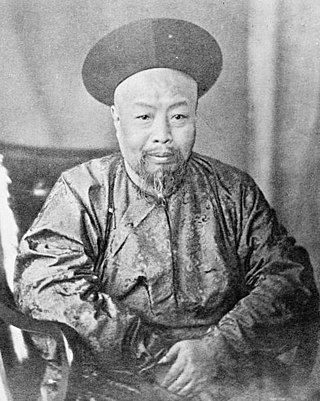
Ye Mingchen was a high-ranking Chinese official during the Qing dynasty, known for his resistance to British influence in Canton (Guangzhou) in the aftermath of the First Opium War and his role in the beginning of the Second Opium War.

Sarah Rees Brennan is an Irish writer best known for young adult fantasy fiction. Her first novel, The Demon's Lexicon, was released June 2009 by Simon & Schuster. Rees Brennan's books are bestsellers in both the UK and USA.
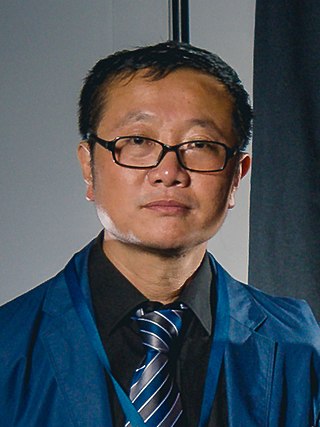
Liu Cixin is a Chinese computer engineer and science fiction writer. He is a nine-time winner of China's Galaxy Award and has also received the 2015 Hugo Award for his novel The Three-Body Problem as well as the 2017 Locus Award for Death's End. He is also a winner of the Chinese Nebula Award. In English translations of his works, his name is given as Cixin Liu. He is a member of China Science Writers Association and the vice president of Shanxi Writers Association. He is sometimes called "Da Liu" by his fellow science fiction writers in China.
Julia Lovell is a British scholar, author, and translator whose non-fiction books focus on China.
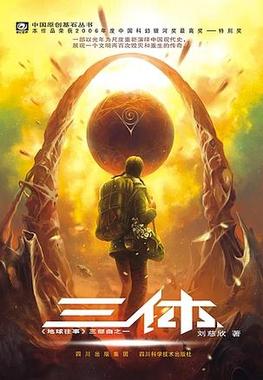
The Three-Body Problem is a 2008 novel by the Chinese science fiction author Liu Cixin. It is the first novel in the Remembrance of Earth's Past trilogy. The series portrays a fictional past, present, and future wherein Earth encounters an alien civilization from a nearby system of three Sun-like stars orbiting one another, a representative example of the three-body problem in orbital mechanics.
E. Lily Yu is an American author. In 2012, she won the John W. Campbell Award for Best New Writer for her short story "The Cartographer Wasps and the Anarchist Bees"; the work was nominated for the Hugo Award for Best Short Story and the World Fantasy Award—Short Fiction.
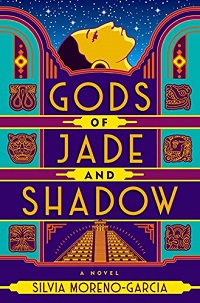
Silvia Moreno-Garcia is a Mexican and Canadian novelist, short story writer, editor, and publisher.

This is a complete list of works by American author Robin Hobb, the pen name of Margaret Astrid Lindholm Ogden, who also writes under the pen name Megan Lindholm.

Fonda Lee is a Canadian-American author of speculative fiction. She is best known for writing The Green Bone Saga, the first of which, Jade City, won the 2018 World Fantasy Award and was named one of the 100 Best Fantasy Books of All Time by Time magazine. The Green Bone Saga was also included on NPR's list, "50 Favorite Sci-Fi and Fantasy Books of the Past Decade".

Rebecca F. Kuang is an American fantasy novelist. Her first novel, The Poppy War, was released in 2018, followed by the sequels The Dragon Republic in 2019, and The Burning God in 2020. Kuang released a stand-alone novel, Babel, or the Necessity of Violence in 2022. Her latest release is Yellowface, a satirical novel which was published in 2023. Kuang holds an undergraduate degree in international economics with a minor in Asian Studies from Georgetown University and graduate degrees in Sinology from Magdalene College, Cambridge, and University College, Oxford, and is currently pursuing a PhD at Yale University.

The Poppy War is a 2018 novel by R. F. Kuang, published by Harper Voyager. The Poppy War, a grimdark fantasy, draws its plot and politics from mid-20th-century China, with the conflict in the novel based on the Second Sino-Japanese War, and an atmosphere inspired by the Song dynasty. A sequel, The Dragon Republic, was released in August 2019, and a third book, The Burning God was released November 2020.
AnnaLinden Weller, better known under her pen name Arkady Martine, is an American author of science fiction literature. Her first novels A Memory Called Empire (2019) and A Desolation Called Peace (2021), which form the Teixcalaan series, each won the Hugo Award for Best Novel.
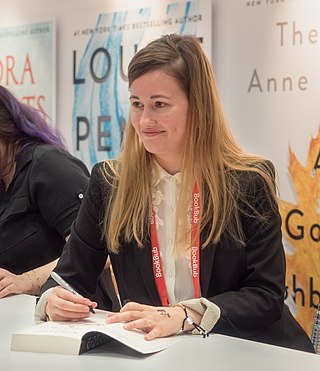
Tamsyn Elizabeth Muir is a New Zealand fantasy, science fiction, and horror author best known for The Locked Tomb, a science fantasy series of novels. Muir won the 2020 Locus Award for her first novel, Gideon the Ninth, and has been nominated for several other awards as well.

Middlegame is a 2019 science fantasy/horror novel by American novelist Seanan McGuire. It was well-received critically, winning the 2020 Locus Award for Best Fantasy Novel and garnering a nomination for the 2020 Hugo Award for Best Novel.
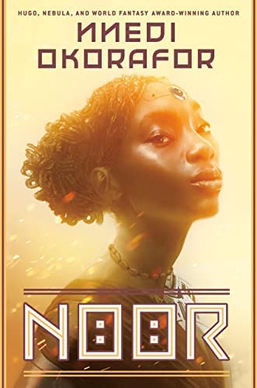
Noor is a 2021 Africanfuturist science fiction novel by Nigerian American author Nnedi Okorafor. The novel was published on November 9, 2021, by DAW Books and is the fourth adult novel written by Okorafor. It is a finalist for the Locus Award for best science fiction novel.

The Dragon Republic is a grimdark fantasy novel written by R. F. Kuang and published by HarperCollins. The book was published on August 6, 2019, as a sequel to The Poppy War.
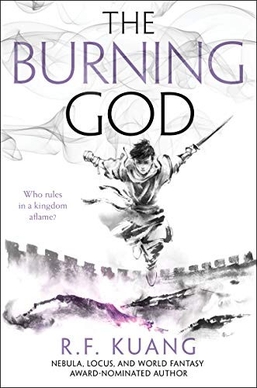
The Burning God is a grimdark fantasy novel by American writer R. F. Kuang and published by Harper Voyager on November 17, 2020, as the third and final installment in her Poppy War trilogy.
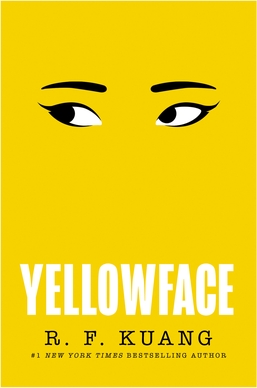
Yellowface is a 2023 satirical novel written by R. F. Kuang. The book was described as a satire of racial diversity in the publishing industry as well as a metafiction about social media, particularly Twitter.

















